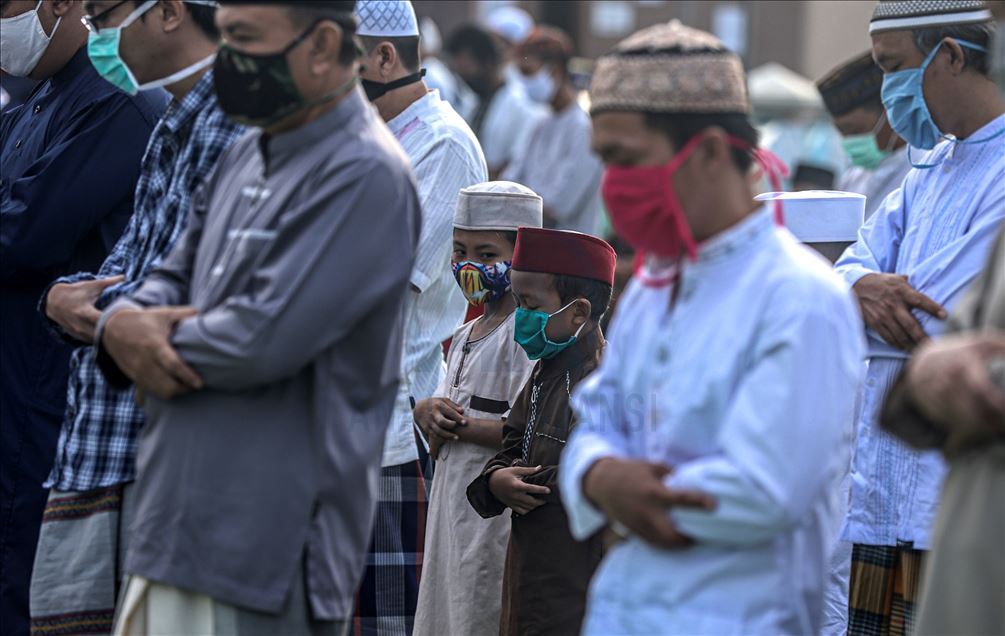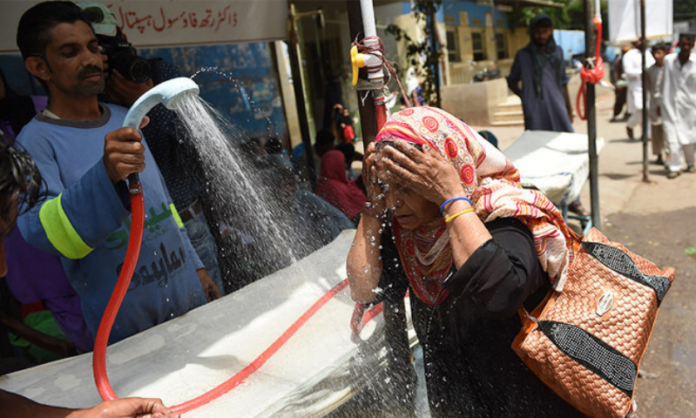This year the holy month comes to us with double difficulties: The social distancing, curfews and closure of shops, though hopefully loosening in the near future, is already putting people into a difficult situation. With May and June the hottest months in Pakistan, people without adequate access to cooling or sufficient water could face health risks, particularly during the lockdown, scientists warned.
In this unusual adverse situation beyond compare, unusual and extraordinary care is needed to get people through this critical time. The decision about what to do with Tarawih and other prayers during the holy month has been greatly helped by the Meccan announcement that in this should be done at home so that the risk of spreading the virus is minimized. except for Pakistan, all other muslim countries are following this announcement in letter and spirit. However it is not surprising that our own religious leaders in Pakistan do not give by heed to this caution. They are afraid to lose control and power they exercise through in Pakistan the pulpit in mosque, particularly during this religious sensitive time when religious emotions are high and even when the security of life should take precedence. Their other patent misconception is that the more stringent they are in following religion, the more pious they become. not only is this misconception totally in contradiction to what Islam teaches us, it is a result of lack of understanding of religion. at times this drives some people away from religion, mainly because of the way it is presented to them.
Remember how in 2018 during Ramazan a heatwave swept through Karachi and Sindh with temperatures well above 40 degrees Celsius. Media reported that up to hundred people died from heat stroke and many more broke down in the streets and had to be taken to hospital. Especially elderly people and people with a health impairment have to be extra cautious and keep hydrated during such hot temperatures.
An even larger heatwave hit Karachi in June 2015. Temperatures above 40°c affected large parts of Sindh and Baluchistan province, it was Karachi, which bore the brunt of most deaths. The Edhi morgue in Karachi is considered the biggest in the city, with capacity for 100 to 150 bodies. But even they couldn’t cope. Several hundred bodies picked up by Edhi during those days were never identified. Did this happen because it was in the month of ramazan when many people fast from dawn to dusk? or did prolonged electricity shortages and chronic water shortages exacerbate the problem? officials insisted that it was perhaps the cumulative effect of all these factors, which led to hundreds of deaths. What was clear is that most people, including the authorities, were caught unaware by the deadly impact of the heatwave. Pakistan’s meteorological department was criticised for failing to forecast the calamity or issue any warnings. Medics in government run hospitals were overwhelmed and struggled to cope. Most blame was laid at the doorstep of the provincial government in Sindh, run by former President Asif Ali Zardari’s PPP party, for moving too slowly to address public misery. While hundreds were dying in Karachi, Mr. Zardari and other powerful members of his family chose to fly out of the country and visit the family chateau near Paris. The government was seen as unresponsive to the unfolding tragedy. The weakest and the most vulnerable were the worst hit, among them a large number of elderly people, many of who were already unwell.
learning from that experience in April 2019 heatstroke wards were set up at government hospitals and an emergency was declared for the treatment of those affected by the extreme heat. Heatstroke camps were set up across the country’s largest city. In addition, KE and other organizations had taken precautions by erecting Shamianas in the open, at street corners and near trees where people could sit down, rest and drinking water was supplied to them by volunteers. Luckily, last year’s weather was not as hot as the years before so that emergencies could be avoided.

This year’s ramazan is approaching fast and it is quite clear that we are looking forward to an unusual ramazan this year. So far the weathermen tell us that until the end of April no heat wave or other emergency is expected. But that could change during May when usually temperatures are rising. Given the fact that our hospitals and medical personal are busy taking care of coronavirus patients and others are in self-isolation, there is a danger that the forthcoming hot temperatures are being forgotten and no preventive measures are being taken.
National Disaster Management Authority (NDMA) was created in 2007, it is currently headed by Lt. Gen Muhammad Afzal. It has a provincial and a district level according to the organogram but trying to get to the Sindh branch of (NDMA) brought us nowhere. even at the national level only information about the coronavirus crisis are displayed. No preventive measures seem to be in store for either heatwaves or floods. All information available on that page is only with reference to the past. And the Sindh Branch seems to be not existent or active at all. This is a deplorable situation that has been hounding Pakistan through the decades. We are reactive rather than active; the crisis needs to hit first and then we start thinking what to do with it. With hospitals already filling with COVID-19 patients everybody really has to work doubly hard to make sure that the heat wave related burden on hospitals is minimized, particularly aggravated because of Ramazan.
Therefore, we think that it would be a good idea for the Karachi and Sindh authorities to take precautions just in case the weather will surprise us. While the coronavirus lockdown has created a situation when power and water shortage is not imminent because of industries down KE and the Karachi Water Board should check their resources and make sure they are available without fail during ramazan. In addition and just to be on the safe side, arrangements to provide shade and drinking water could be made at different places in the markets and at corners like it was done last year. While it is hoped that next month the number of coronavirus cases will come down and economic activity can resume in Sindh the lessons that the lockdown has taught us could help to get through the holy month more easily. Those are (1) shops should open early at 7 or 8 o’clock in the morning so that one can do the shopping while the weather is relatively cool. (2) Staying indoors and limiting social contact in day time would help to avoid both infection and heat related calamities. (3) Distribution of rations or money hand-outs should also be done in the morning hours for the same reasons. (4) closing hours of whatever shops are allowed to be open at all could be extended till 7pm (before Iftar) but not allowed after that to avoid crowding in markets and shops. ramazan bazars could be avoided this year. (5) Rescue officials have been advising in the past those who fast to avoid prolonged exposure to direct sunlight, and to keep their skin particularly on their heads and faces, moist.
Facing multiple problems because of COVID-19 complicating both ramazan and the normal hot weather turning into a heat wave, we cannot forget that we are further in deep trouble because of the already stricken economy which will keep deteriorating as unemployment increases dramatically with the closing of industrial, commercial and services businesses. While we must thank God for having Hafeez Sheikh and Reza Baqir managing the economy in their dire straits, we cannot keep hoping for the best, we should only plan for the worst!




